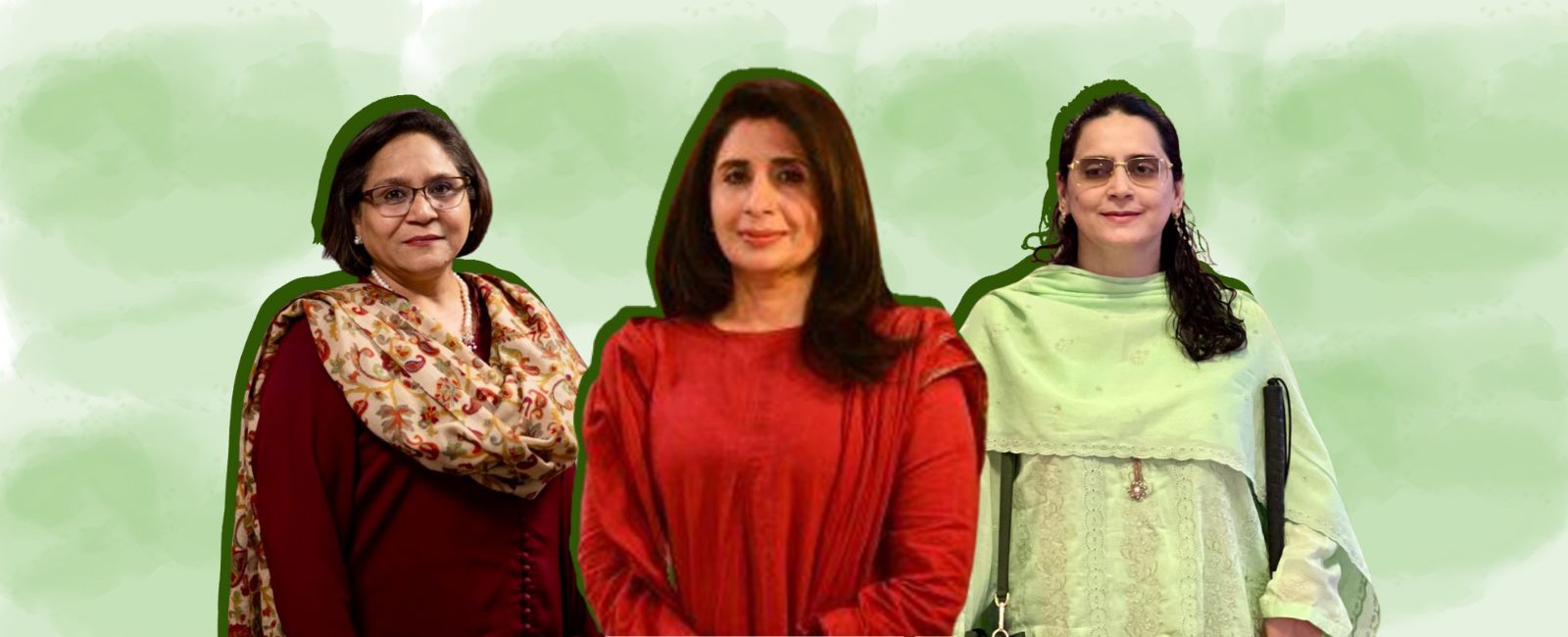Shieldmaidens of statecraft: Rise of women on Pakistan's diplomatic frontlines
Pakistani women diplomats' journey shows they haven’t just made space, they’ve made history with courage, competence, and conviction

In a country where women who speak their minds are seen as a threat, where they struggle to find space in male-dominated fields, and where gender equality still feels like a distant goal, diplomacy tells a very different story.
Not only has the Foreign Service of Pakistan (FSP) emerged as a welcoming field for female officers, but it has also shown the world the power women wield as they negotiate on international fora and help reshape global dynamics.
“Foreign Service of Pakistan is an equal opportunity service. If you are working hard, your work will be noticed, whatever your background,” said Mumtaz Zahra Baloch, Pakistan’s Ambassador to France and Permanent Delegate to UNESCO since January 2025, told Geo.tv.
Calling diplomacy a strong career choice for women in Pakistan, Baloch explained why she thinks so: “Women have an innate ability to resolve differences, to find solutions to problems.”
The former Foreign Office spokesperson has held several key diplomatic roles, including additional secretary for Asia and the Pacific, ambassador to South Korea (2020–2021), minister/deputy head of mission at the embassy in Beijing (2015–2020), political counsellor at the embassy in Washington, DC (2006–2011), and second secretary at Pakistan’s Permanent Mission to the United Nations in Geneva (1999–2002).
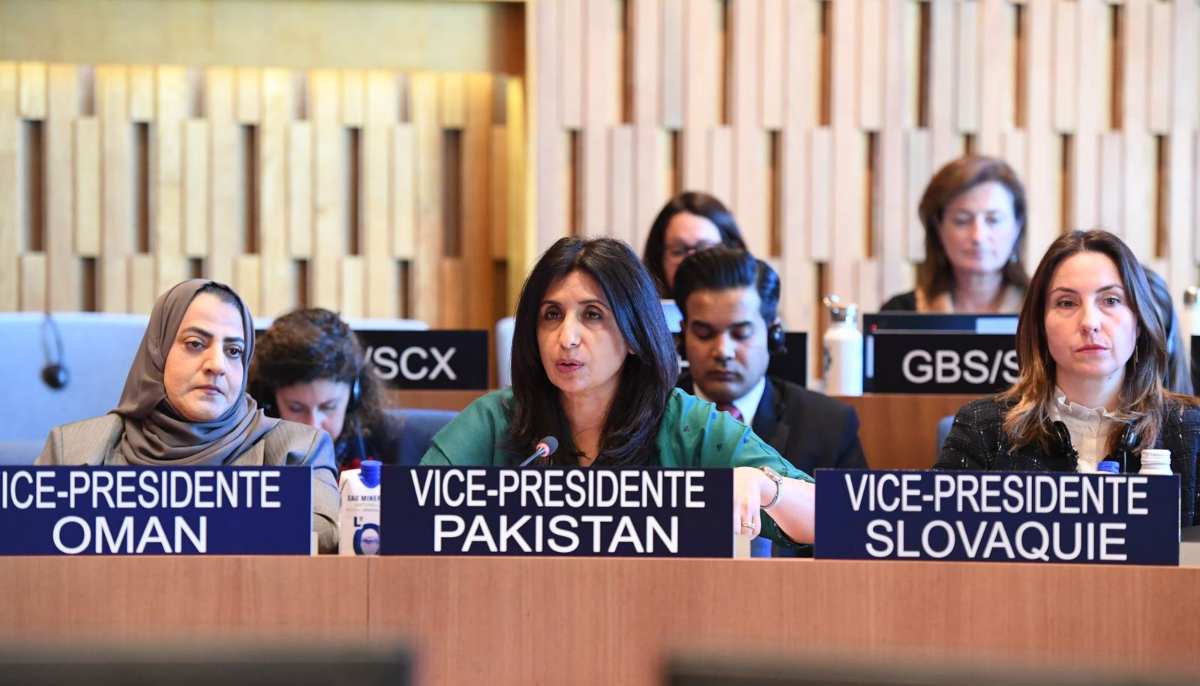
Reminiscing about her earlier days in service, Baloch said, “When I joined, there were very few women in the Foreign Service and not many role models.
“Though some impressive women had come before us, this career wasn’t popular among women, and we weren’t fully aware of its opportunities or challenges.”
“The women before me inspired us, and senior officers, both men and women, were supportive and fostered a positive environment,” she added.
Baloch said she was glad to have chosen this path and felt content knowing it had become a more popular and suitable career for women over time.
On the powerful contributions of women in the field, the seasoned diplomat said, "Pakistani women have been leading Pakistan on the international front right from the beginning of its creation. In 1948, when the UN Human Rights Declaration was being negotiated, it was being negotiated by a Pakistani female diplomat."
“Since then, Pakistani women have been everywhere; there were women ambassadors, ministers, and a prime minister.”
According to a recent World Economic Forum (WEF) report, Pakistan ranks last among 148 countries in the Global Gender Gap Index for 2025, highlighting the persistent struggles Pakistani women face in proving their worth in an unequal economic landscape.
However, the foreign services offer hope to the women, who have long fought to prove they are just as deserving of opportunities as their male counterparts. From challenging assumptions to commanding podiums, women in diplomacy have not only represented Pakistan, but they’ve also redefined what it means to do so.
Baloch commended former top officials for fostering a safe and supportive environment for women in Pakistan’s Foreign Service.
“I think the credit goes to foreign secretaries in the past who created this environment where women feel safe in the work environment because we work long hours — many times late at night, very early in the morning, and sometimes around the clock. This is the kind of service it is.”
“And very early on, my parents and I became convinced that this was a safe environment for me and for women like me — women who were committed to work and who wanted to make a difference and succeed in a career,” she maintained.
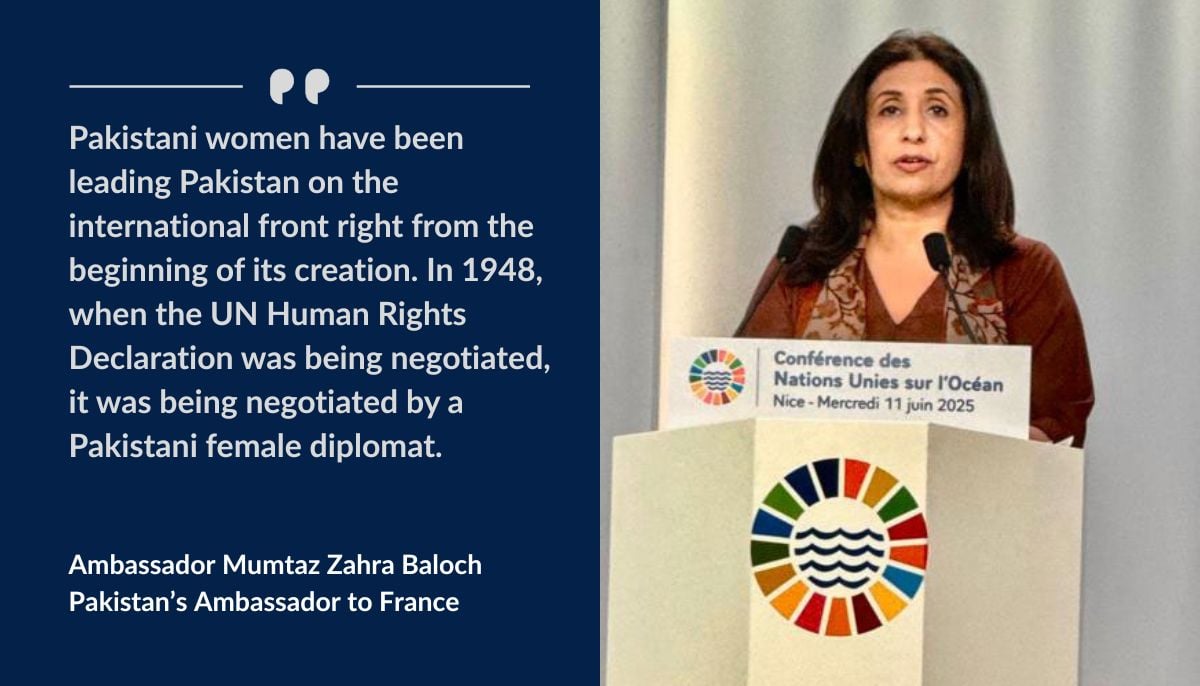
She also attributed much of this progress to open-minded colleagues, both male and female, as well as to leadership.
“Perhaps the people in the foreign service — our male colleagues — have exposure to the world,” Baloch noted.
“They know how women work around the world in male-dominated environments.
“They have this open-minded approach to women colleagues, and they are very cooperative towards women and encourage us to pursue careers.”
The diplomatic pathways gradually opened for women in Pakistan with the help of trailblazers in the field such as Begum Kulsoom Saifullah Khan, the first female federal minister of Pakistan; Benazir Bhutto, the first woman to serve as prime minister of a Muslim-majority country; and Hina Rabbani Khar, the first female foreign minister of Pakistan.
These women paved the way for female diplomats, proving to the world that gender should be seen only as a mode of identification — not a measure of capability.
Beyond pressure — women rising, leading, delivering
Saima Saleem, the first-ever visually impaired officer to join Pakistan’s foreign service, is currently serving as Counsellor-I with Pakistan’s Permanent Mission to the United Nations in New York.
“Women in the country’s foreign service have proven that they can handle pressure and can be assigned key positions,” Saleem told Geo.tv in an exclusive chat.
“While men in our society hold very limiting beliefs and certain mindsets, the overall environment is supportive,” she added, revealing how, as a woman diplomat, she has been given opportunities to represent Pakistan at all levels.
Saleem shared that while she had not faced many challenges based on her gender, she did acknowledge that, as women, female officers were to prove their worth and merit while in office.
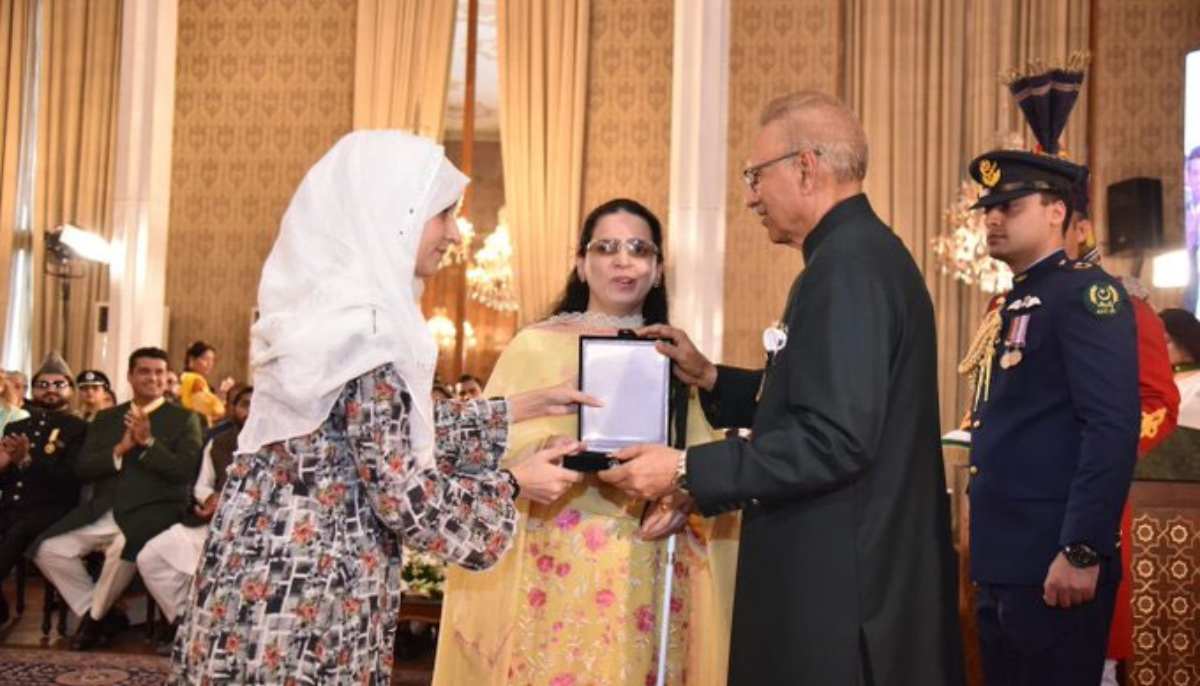
“You have to demonstrate through your hard work, commitment, and dedication that not only can you handle pressure, but sometimes outperform your male counterparts,” she noted.
Speaking on the difficulties women diplomats face in the Foreign Service, Saleem highlighted that travelling and working long hours could sometimes be challenging due to family responsibilities, but it does not hold them back.
“We are always up to the job. We can do any job assigned to us — be it protocols, travelling for work-related matters, attending meetings, working late hours, or even overnight. We have proven it with our work and our commitment.”
“I am not saying that there are no challenges, they are in every society, and ours is no exception.
“But overall, we have demonstrated that we can perform at the international level in the best possible way.”
The diplomat notes that opportunities for women in diplomacy in Pakistan have improved over time, highlighting the rapid increase in female officers in the field.
“When I joined the service, there were fewer women,” she said, adding, “But in the last 16–17 years, many more women have joined the Foreign Service.
“We now have about 25% women’s representation in Pakistan’s Foreign Service.
“The number is steadily increasing, which speaks volumes about the opportunities the service offers and the welcoming attitude it has towards women.”
Saleem described her experience in the field as “immensely rewarding,” having had the opportunity to represent Pakistan at multilateral forums in both New York and Geneva.
“It is a humbling experience to be given a platform to represent your country as a woman diplomat, and to make contributions just like your male counterparts in every domain,” she said.
“At the same time, our representation as female diplomats has a positive impact on Pakistan’s image. It dispels certain negative perceptions about our country — that women are marginalised and not given equal opportunity or representation.”
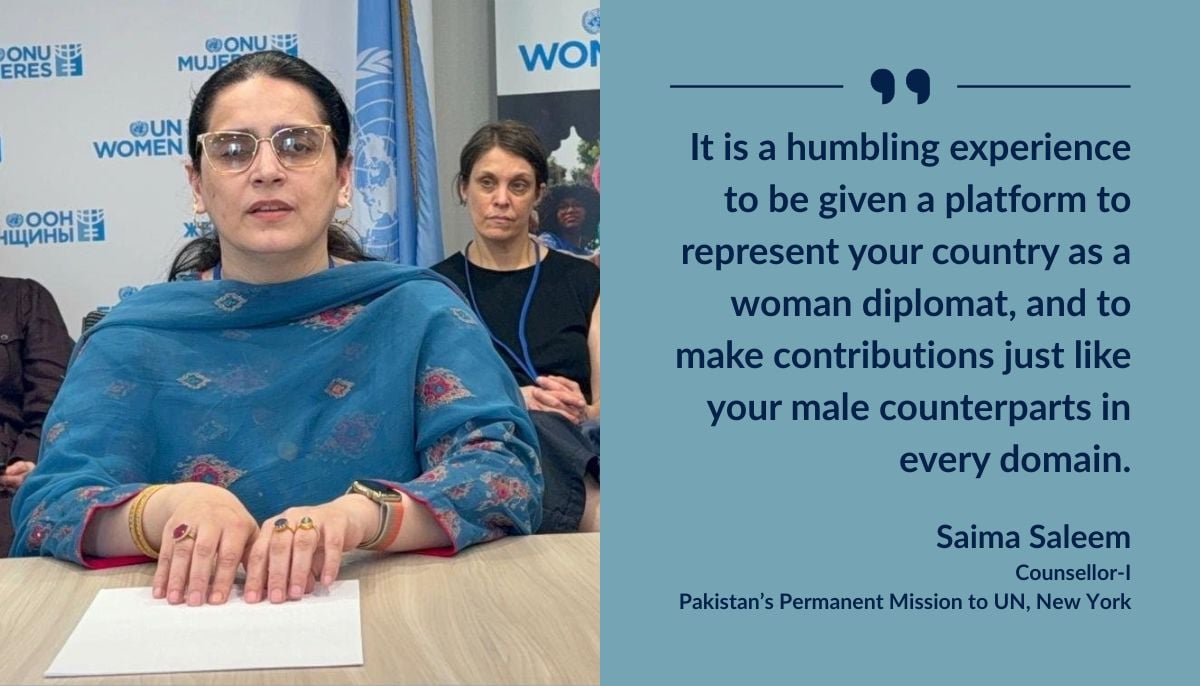
Saleem made history at the 76th UN General Assembly in September 2021 when she gave a befitting response to India’s First Secretary Sneha Dubey in a powerful Right of Reply — becoming the first visually impaired Pakistani diplomat to address the UN via Braille.
Dubey had defended India’s decision to revoke Kashmir’s special status, asserting that the Kashmir issue was solely an internal affair. Not only did Saleem deliver a high-stakes rebuttal, but she also asserted her position as an influential Pakistani diplomat.
In a powerful response, she upheld Pakistan’s stance by referencing United Nations resolutions, called for a transparent vote to determine Kashmir’s future, and held India responsible for state-sponsored violence in the region.
Reflecting on the moment, she says it remains one of the proudest moments of her career so far.
“My first Right of Reply to India in 2021 went viral all over the world. Millions watched it.
“My ambassador trusted me with the responsibility to represent Pakistan during the High-Level Week, where only heads of state and governments take the floor to deliver their remarks.”
“I was chosen to respond to India after our Prime Minister’s statement, he trusted me, and it meant everything,” Saleem recalled.
More than a career — a way of life
Ambassador Naghmana A Hashmi, who served as Pakistan's ambassador to China, echoed Baloch and Saleem’s sentiment, noting that Pakistan’s Foreign Service is one of the best services women can join.
“The working environment at the Foreign Service is very, very conducive to women.
“People in the Ministry of Foreign Affairs travel the world and see different cultures, so they’re accustomed to seeing women in important positions.
“Even at the staff level, they’re aware of how empowered women are across the world — including in many Muslim countries,” she told Geo.tv.
“Personally, I have never really experienced any gender-based challenges. In fact, I think being a woman has sometimes been an advantage in diplomacy.”
With over 37 years of service, Hashmi — who, alongside multiple other role also serves as an independent director at the First Women Bank — is a veteran Pakistani diplomat who served as Pakistan’s ambassador to China from 2019 to 2020 and previously held ambassadorships to the European Union, Belgium, Luxembourg, and Ireland, along with earlier postings in France, Denmark, Indonesia, and two terms in Beijing.
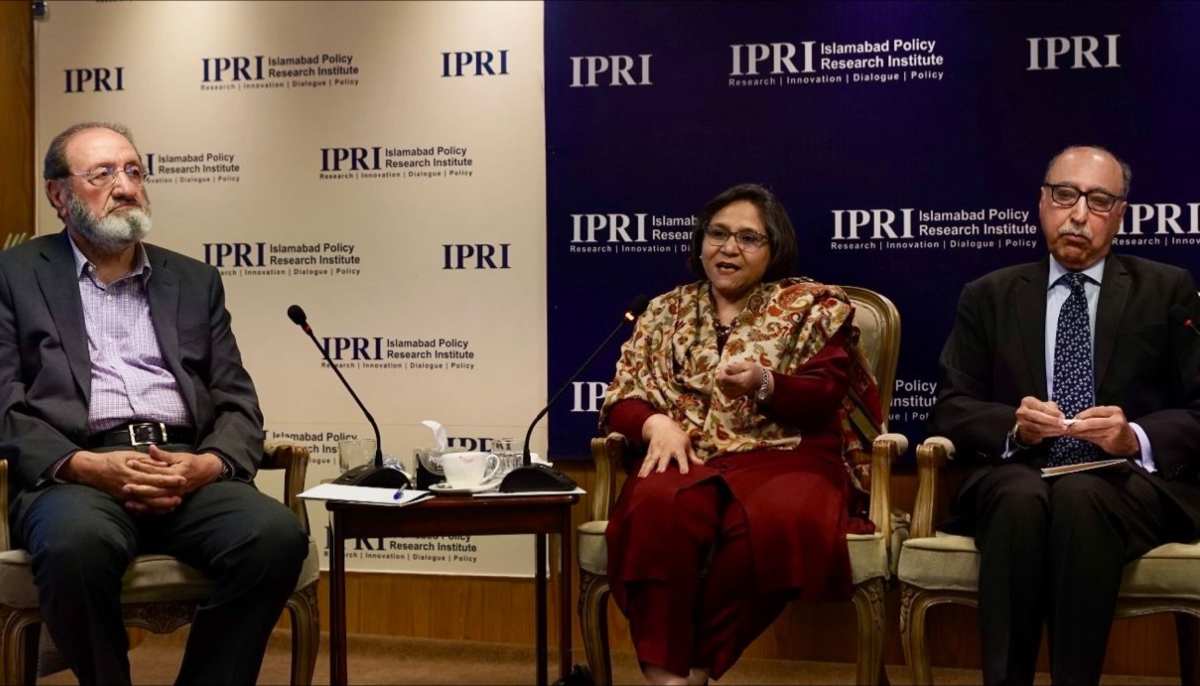
Looking back on her service, she noted how women diplomats helped create a positive image of Pakistan internationally.
“When you went abroad, Pakistan was often perceived through the lens of its proximity to Afghanistan and the Middle East, especially during the Afghan Jihad.
“So, the world had a very different perception of what Pakistan was.
“For them, seeing an educated young woman representing Pakistan on international platforms or in a meeting challenged stereotypes without needing further explanation.
“It showed that Pakistan has professional and capable women.”
Hashmi further discussed the role of female Foreign Service officials in Pakistan’s current diplomatic landscape, particularly in relation to the Israel-Iran conflict and ongoing tensions with India.
“As far as the role of the Pakistani diplomats is concerned, we have always performed beyond our size.
“We're a very small service with barely 400 officers who serve at missions abroad and across Pakistan, so we are very thinly spread.
“In this context, dividing diplomats on the basis of gender would be unfair. Like our male colleagues, female diplomats are also at the forefront — being the first line of defence,” she said.
“It's not the first time that we’ve had to face a difficult situation.
“Pakistan has been through many, many phases that were extremely difficult.
Women have served in war zones and in counties with challenging living conditions, and yet, we continued to serve,” she added.
“Diplomats are trained to withstand the pressure. We are trained not to be intimidated, and to stand up in front of the international community and boldly protect our national interest and propagate our narrative," said Ambassador Hashmi.
According to her, people all over the world recognise the diplomatic skills of Pakistani diplomats.
“That is why we have been able to garner a lot of support and protect our national interest against extremely negative and false propaganda.
“For example, from India and Israel and our other detractors, because we’re competent.
She reinforced that performance, not gender, defines a diplomat’s success.
Addressing young women aspiring to become diplomats, Hashmi emphasises that the Foreign Service is a lifestyle and a way of thinking. She advises them to work hard and be prepared for lifelong learning as every country they are posted to will be different and every situation will be unique.
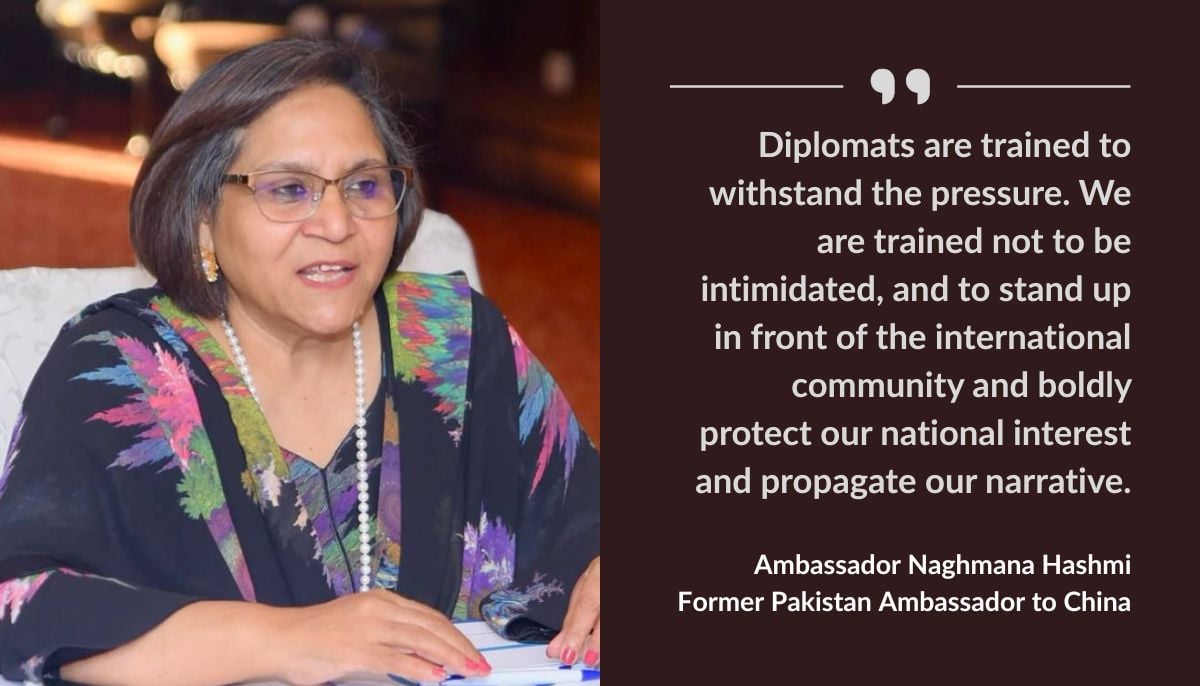
Emphasising the importance of knowing your country inside out, she said, “For you to defend your national interest, you need to know your country — its issues, its problems, its policies, its history, geography, and culture — very, very well. Because when you don't, you can't defend.
“You also need to be open-minded, composed, and sharp in your public dealings.
“Diplomacy requires you to monitor global developments constantly, regardless of weekends or holidays. The job demands full dedication.”
However, she adds, the reward is amazing, because it’s so satisfying to put that Pakistani flag over your dupatta and stand in front of the whole world, and protect who you are, what your identity is, and what Pakistan stands for.
“I think there's nothing more satisfying in this world than to stand there and proudly defend your country.”
“You’ll be rewarded for your intellectual work and your dedication and seriousness, not because it's gender-based.”
The former ambassador proudly reflected on how women in the service have balanced careers and families.
“Women are capable and enterprising. We multitask effortlessly! Many of us were married, raised children, and now have grandchildren, all while continuing our careers. It’s encouraging to see that it’s worked out for so many of us.”
“If you’re looking for a professional environment where merit is valued over gender, this is it. I served nearly 38 years and never once felt I was treated unfairly because I was a woman,” she concluded.
Pakistani women in diplomacy have quietly broken barriers, stood their ground, and carried the flag with pride. Their journey shows that with courage, competence, and conviction, they haven’t just made space, they’ve made history.
Farheen Qureshi is a staffer at Geo.tv. She posts on X @farheen027
Header and thumbnail illustration by Geo.tv



